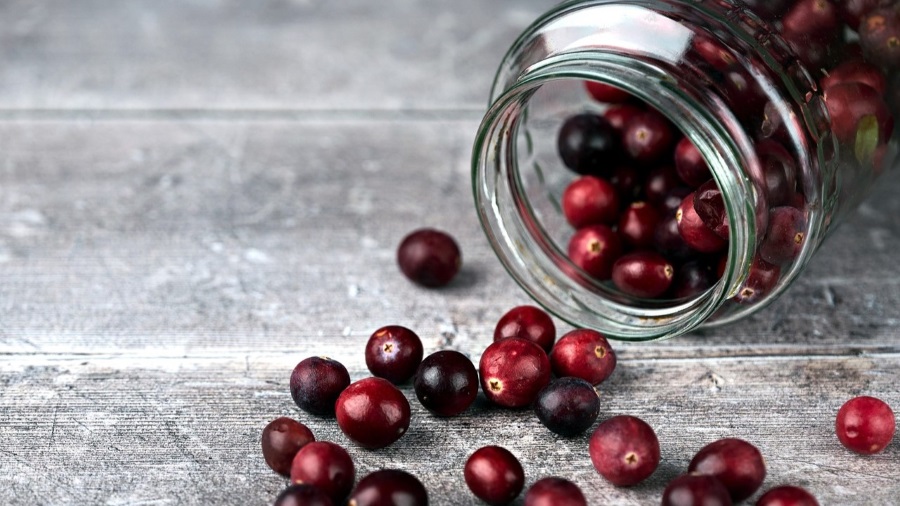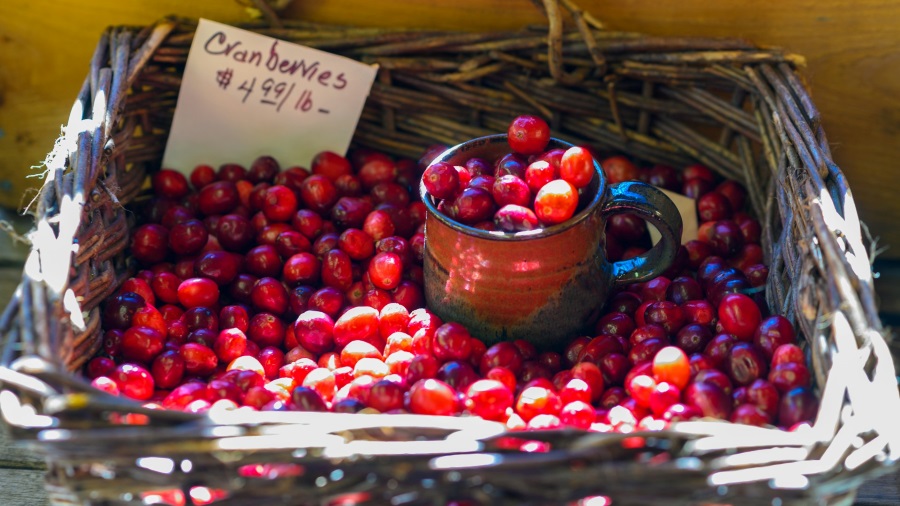Cranberries are more than just a tart addition to sauces and salads or the jiggly jelly on the Thanksgiving table – they pack a powerful punch of health benefits. From boosting immune function to promoting heart health, cranberries offer a range of advantages making them a valuable addition to any diet.
The Power Of Antioxidants
Cranberries are nutrient-dense and rich in antioxidants, particularly flavonoids and phenolic acids. These compounds help neutralize harmful free radicals which reduce inflammation and oxidative stress. By fighting oxidative damage, cranberries may lower the risk of chronic diseases such as cancer, cardiovascular disease, and neurodegenerative disorders like Alzheimer’s disease.
The anti-inflammatory properties of cranberries extend beyond oxidative stress reduction. Certain compounds in cranberries, such as anthocyanins, have been shown to inhibit inflammatory pathways in the body. This makes cranberries potentially beneficial for individuals with conditions characterized by chronic inflammation, such as arthritis and inflammatory bowel diseases like Crohn’s disease and ulcerative colitis.

How About Those Vitamins And Minerals?
Cranberries are rich in vitamins and minerals, including C, E, K1, and manganese.
Vitamin C plays a crucial role in immune function, promoting the production of white blood cells and enhancing the body’s ability to fight off infections. Vitamin C is also a powerful antioxidant that supports skin health and collagen production, aiding in wound healing and maintaining youthful skin.
Vitamin E is essential for maintaining healthy skin, eyes, and immune function due to its antioxidant properties, which help protect cells from damage caused by free radicals. Additionally, vitamin E plays a role in supporting cardiovascular health by promoting proper blood circulation and reducing inflammation in the body.
Vitamin K1 is primarily beneficial for blood clotting. It helps produce clotting factors in the liver, which are essential for wound healing and preventing excessive bleeding. Vitamin K1 also supports bone health by aiding in the regulation of calcium, contributing to strong and healthy bones.
Manganese is an essential trace mineral and a crucial component of many enzymes involved in metabolism, bone development, and antioxidant defense. Manganese also plays a role in forming connective tissue, blood clotting, and the metabolism of amino acids, cholesterol, and carbohydrates. Additionally, it contributes to the proper functioning of the nervous system and helps regulate blood sugar levels.

Ways To Enjoy And A Recipe To Try!
Fresh cranberries can be enjoyed in salads, sauces, and baked goods, and unsweetened cranberry juice provides an easy way to get the health benefits of cranberries without added sugars.
For those who prefer a sweeter option, dried cranberries can be added to trail mix, oatmeal, or yogurt, but be mindful and always check the label for ingredients and the amount of added sugars, especially in juices.
Cranberry Salsa And Grilled Chicken
Courtesy of US Cranberries

Ingredients
- Cranberry Salsa
- 1/2 cucumber, peeled, deseeded and finely diced
- 1 large green chili, deseeded and chopped finely
- 1/2 Spanish onion, finely diced
- 1 bunch coriander, roughly chopped
- 1/3 cup dried cranberries, roughly chopped
- Juice of 1 lime
- 4 free-range chicken fillet breasts, approximately 180g each
- 3 cups mixed green leaves
- 2 generous handfuls of green beans



